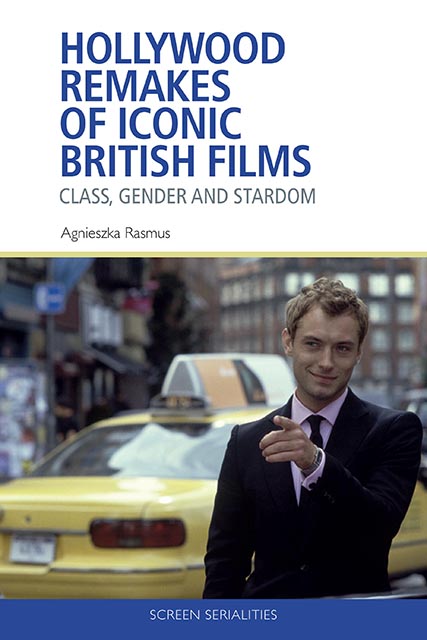Book contents
- Frontmatter
- Contents
- List of Figures
- Acknowledgements
- Preface
- Chapter 1 Remaking Iconic British Films of the 1960s and 1970s
- Chapter 2 From British Working-Class Gangsters to Hollywood Heroes: The Italian Job and Get Carter
- Chapter 3 Gender, Stars and Class Wars: Alfie and Sleuth
- Chapter 4 From Devilish Masters to Evil Dames: Bedazzled and The Wicker Man
- Chapter 5 Remaking, Cultural Exchange and Personal Legacy: The Limey
- References
- Index
Chapter 2 - From British Working-Class Gangsters to Hollywood Heroes: The Italian Job and Get Carter
Published online by Cambridge University Press: 10 August 2023
- Frontmatter
- Contents
- List of Figures
- Acknowledgements
- Preface
- Chapter 1 Remaking Iconic British Films of the 1960s and 1970s
- Chapter 2 From British Working-Class Gangsters to Hollywood Heroes: The Italian Job and Get Carter
- Chapter 3 Gender, Stars and Class Wars: Alfie and Sleuth
- Chapter 4 From Devilish Masters to Evil Dames: Bedazzled and The Wicker Man
- Chapter 5 Remaking, Cultural Exchange and Personal Legacy: The Limey
- References
- Index
Summary
With the increasing global popularity of British romantic comedies since the 1990s, it is sometimes easy to forget that British cinema has produced some of the most striking examples in the crime genre. Two of them, The Italian Job (Collinson, 1969) and Get Carter (Hodges, 1971), are discussed together in this chapter. They stand out in the British crime genre, albeit for different reasons. Steve Chibnall observes that, in both, ‘the social realist aspect of the crime genre remained in creative tension with its melodramatic and comedic elements’ (2009: 376). While the comedic elements that the producer and the director added to The Italian Job may have obscured the film's social comment, in the case of Get Carter, the combination of realism and classical American film genres punctuated by moments of dark humour creates a richly layered text reflecting on the time and place of its production.
Both belong to the gangster genre, yet each is located at the opposite end of its spectrum. The Italian Job is a comedy caper, whereas Get Carter belongs to the world of the neo-noir thriller. Chibnall's distinction between ‘gangster light’ and ‘gangster heavy’ (2009: 377), even though referring to the cycle of British films at the turn of the new millennium, applies equally to these two classics. Since both star Michael Caine, they also show the development of his gangster persona, in sequence exhibiting a hardening of his screen masculinity from a softer London manhood in the earlier film to a more sinister Northern masculinity associated with the British New Wave in the later one. In The Italian Job, he plays the leader of a gang that tries to steal gold from the Italian Mafia; in Get Carter, he is a violent racketeer who returns to his hometown to avenge his brother's death. The chapter starts by investigating the transformation of Caine's working-class gangster from the cheerful swinging 1960s landscape to the pessimism and delusion of the early 1970s. Both films are then compared to their Hollywood remakes, as the stories are transformed to fit in with the image of their respective stars, Mark Wahlberg and Sylvester Stallone, often with mixed results and containing some contradictions.
- Type
- Chapter
- Information
- Hollywood Remakes of Iconic British FilmsClass, Gender and Stardom, pp. 31 - 64Publisher: Edinburgh University PressPrint publication year: 2022



